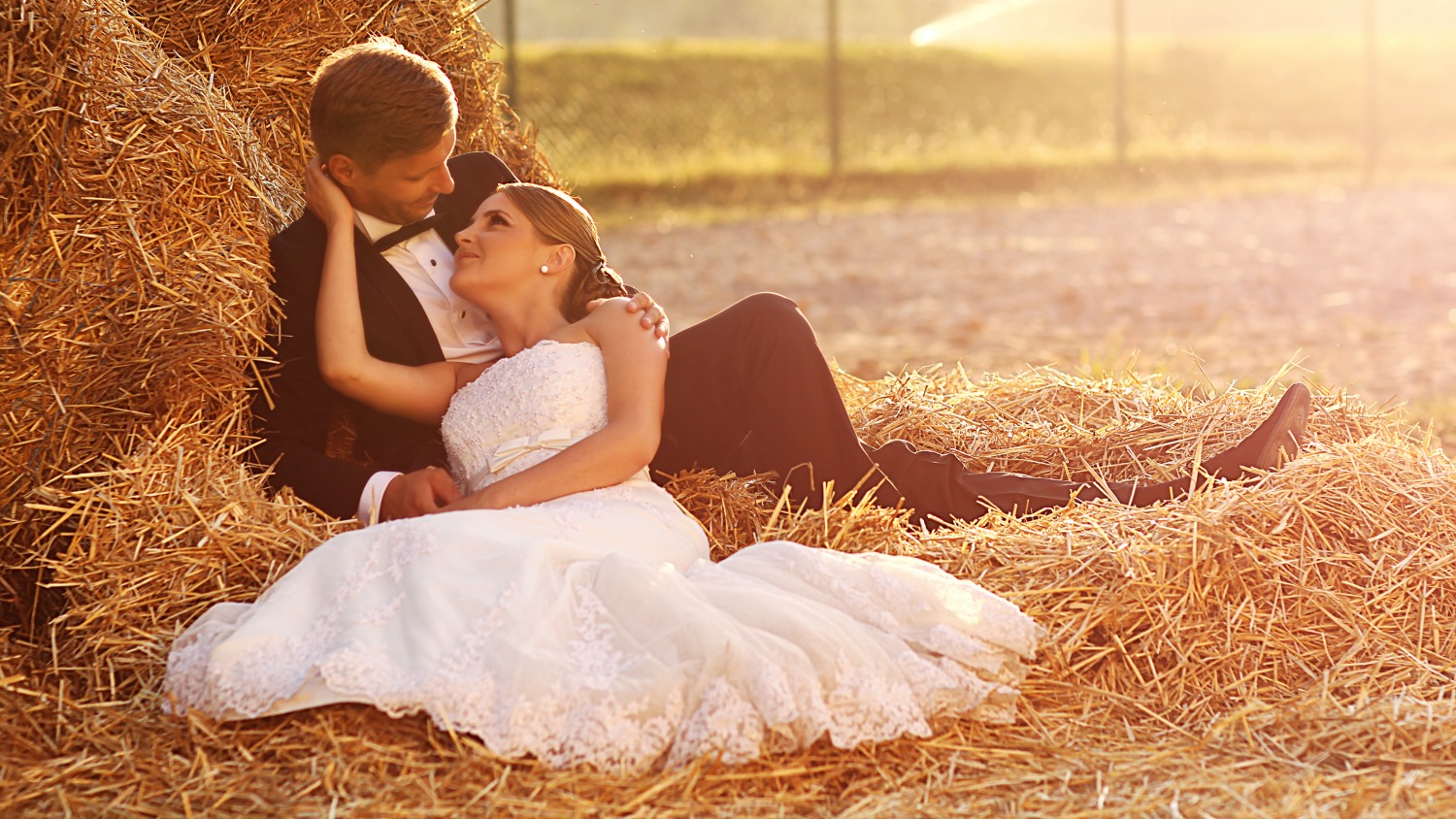Real talk? That hay would be itchy as hell.
For the last few years, farming has enjoyed perhaps unprecedented levels of urban adoration. But two excellent articles recently popped up to warn us of the dangers of romanticizing farming.
Sarah Searle muses for Modern Farmer on the trend of farm-based weddings and agrotourism in general. While that extra bit of income from holding weddings can really make a difference for some farmers, “we’re incentivizing farmers to use their limited resources to perpetuate a romantic stereotype that consumers enjoy, rather than to spend money on functioning, sustainable (but perhaps not magazine-beautiful) models of local farming.” Plus, some once-working farms “have found they can fare better offering a carefully curated version of farming to those willing to pay for it.”
Shells of farms and farmers preoccupied with dancefloor assembly do not a sustainable, hardy food system make.
Over at The Guardian, Beth Hoffman hits hard on how little we actually know about the journey from farm to fork:
It is no surprise that despite years of “storytelling,” the public remains largely ill-informed about the food system. Despite the bucolic-looking labels and idealistic storytelling, organic, it turns out, does not actually mean low tech, low efficiency or the presence of old school machinery or hand-milked cows. Producing local food remains logistically – and financially – complicated for the majority of the world’s farms and ranches, even if the public now views it as more wholesome. And “knowing our farmer,” sadly, does not necessarily mean we understand the practices he or she uses on the farm.
I hope my own storytelling stays out of the idealistic, but even I know it’s easy to veer off in that direction. Not only will it be a disservice to readers, it won’t do anything for the conversation around food, either. “If all consumers see are romantic images of farms,” writes Hoffman, “they learn nothing of the true financial, social, and environmental complexities of farming.”
I was recently chatting with a friend when the topic of romantic agriculture came up. She works on a small farm, and she’s currently writing a book that will be full of practical growing tips and plant histories. She told me that she’s worried about writing about her own experiences. She loves watching things grow and working in agriculture, but if there’s some deep wisdom to glean from farming, she just hasn’t stumbled upon it yet. I shouldn’t have been surprised that this romantic idealism had affected her. It’s a thread that permeates everything from literature to Whole Foods advertising. I told her not to worry about it.
As a farmer or rancher, you are closer to life and death. Your farm blooms and nurses and grows, only to wither and ship away. You can literally taste your hard work at the end of a long day. These are all beautiful, wonderful things, but when it comes down to it, it’s hard work — and dirty work at that. If there’s anything to come from that, it’s this: You are connecting to something natural and real that American culture has fallen too far away from. That should be enough. It is for me.
All of that verges on the romantic, though, so I’ll end on something that will likely horrify instead. When a calf dies or loses her mother, it upsets the balance on our mid-size ranch. When it comes to the orphaned, we could bottle feed the calf through winter. As for the calfless, we could let the confused cow stand on the cusp of bovine bonds, occasionally charging in a vain attempt to claim another’s calf for her own. Neither of those options are ideal, for all parties involved. Instead, when there’s an orphaned calf and a calfless cow, we pull some shit straight out of Hannibal. The cow’s dead calf is skinned. The hide is then tied onto the orphan so that when the calfless cow smells this terrifying Little Orphan Annie, she’ll accept it as her own. This gory switched-at-birth trick is necessary to keep our ranch running smoothly. Neither party seem to notice, but it still makes me shudder after all these years.
This is the sort of thing that’s left out of Superbowl ads and Chipotle marketing and bridal backdrops, though I can’t much blame them. While I love ranching and farming, it’s also full of shit, technology, blood, stubborn fields, and the adorable, animal versions of Buffalo Bill. How’s that for romantic?



